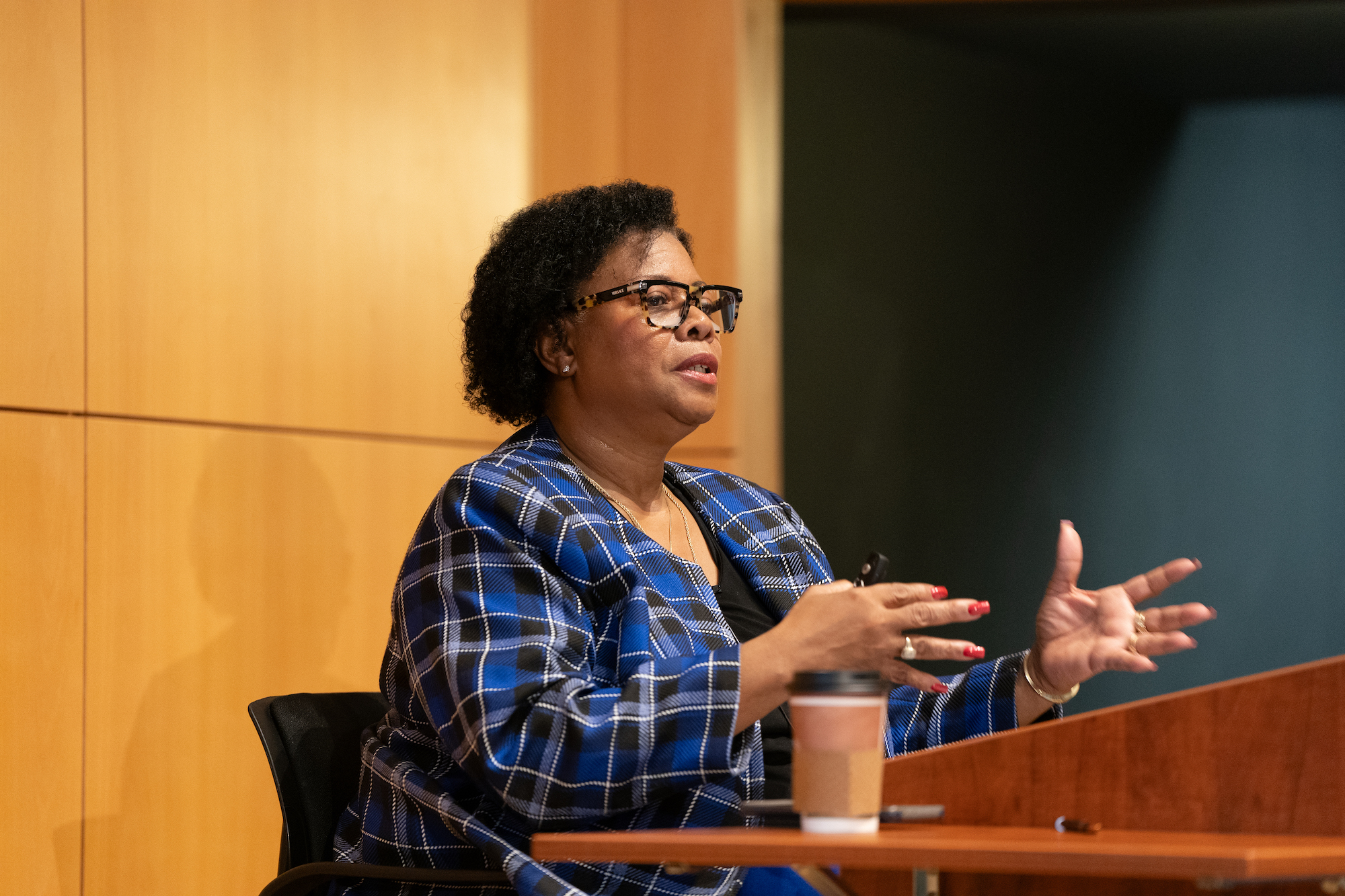UMB Hosts Inaugural Budget Town Hall
November 22, 2024 Lorri Angelloz
The event detailed UMB’s financial framework, budget process, and challenges for Fiscal Years 2024 and 2025 and provided an early look at FY26.
Photo: Dawn M. Rhodes, DBA, chief business and finance officer and senior vice president, speaks during the town hall.
The University of Maryland, Baltimore (UMB) held its inaugural budget town hall on Monday, Nov. 11, bringing faculty, staff, and administrators together for an in-depth discussion on the University’s fiscal health and planning. With a goal to enhance transparency, the event detailed UMB’s financial framework, budget process, and challenges for Fiscal Years 2024 and 2025 and provided an early look at FY26.
Leading the presentation was Dawn M. Rhodes, DBA, chief business and finance officer and senior vice president, who emphasized that UMB remains financially robust. She said that FY24 closed on a $15 million surplus, increasing the University’s fund balance to $312 million. This fund serves as a reserve for strategic investments and emergencies.
Rhodes pointed to metrics that consistently surpass University System of Maryland benchmarks, saying that UMB is “a fiscally strong and healthy university. Please take that away from this discussion. We are extremely strong.”
However, she noted that FY25 has posed challenges. UMB’s $1.7 billion all-funds budget includes a $16.9 million increase in assessments, driven by reduced state appropriations and rising operational costs. The assessment — essentially a tax allocated to schools and administrative units — funds strategic initiatives and offsets state funding cuts.
During the event, Rhodes also explained key concepts including fund balances, one-time vs. permanent revenues and expenses, and the assessment process. She also outlined the annual budget timeline, which involves collaboration with deans, faculty, and staff senates through the Funding Model Work Group.
Rhodes stressed proactive planning for FY26, citing the possibility of another cut in state appropriations. "We don’t want to wait and have things happen to us. We want to be proactive," she said. Plans include improving operational efficiency, realigning resources, and exploring revenue-generating opportunities.